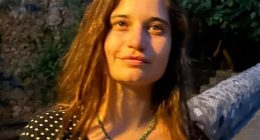
As Furchner was an adolescent at the time of the crimes, the 97-year-old’s trial took place before a juvenile court and her sentence will see her placed into juvenile probation, the court confirmed to CNN.
In her closing statement, Furchner said she was sorry for what had happened and regretted that she had been at Stutthof at the time.
Furchner went on the run weeks before her trial was due to begin, but was found by authorities after several hours. Proceedings eventually began late last year.
Efraim Zuroff, the top Nazi hunter at the Simon Wiesenthal Center, said that “today’s verdict is the best that could be achieved, given the fact that she was tried in a juvenile court”.


“In view of Furchner’s recent statement to the court that she ‘regretted everything’, we were concerned that the court might accept her defence attorney’s plea for an acquittal,” Zuroff said in a statement.
“Yet given her claim that she had no knowledge of the murders being committed in the camp, her regret was far from convincing.”
Read Related Also: Moderna Covid booster targeting Omicron variant approved by Therapeutic Goods Administration
Prosecutors in Itzehoe said during the proceedings that Furchner’s trial may be the last of its kind.
However, a special federal prosecutors’ office in Ludwigsburg tasked with investigating Nazi-era war crimes says another five cases are currently pending with prosecutors in various parts of Germany, where charges of murder and accessory to murder aren’t subject to a statute of limitations.

Germany has raced to bring the perpetrators of Nazi war crimes to justice in recent years, before it is too late. But experts say that only a small proportion of those involved ever faced a court.
Tens of thousands of people were held in brutal conditions at the Stutthof camp, and more than 60,000 died there.
Stutthof mainly held non-Jewish Poles, as well as a large number of Jews from the Polish cities of Warsaw and Bialystok and from Nazi-occupied Baltic states, according to the museum.







